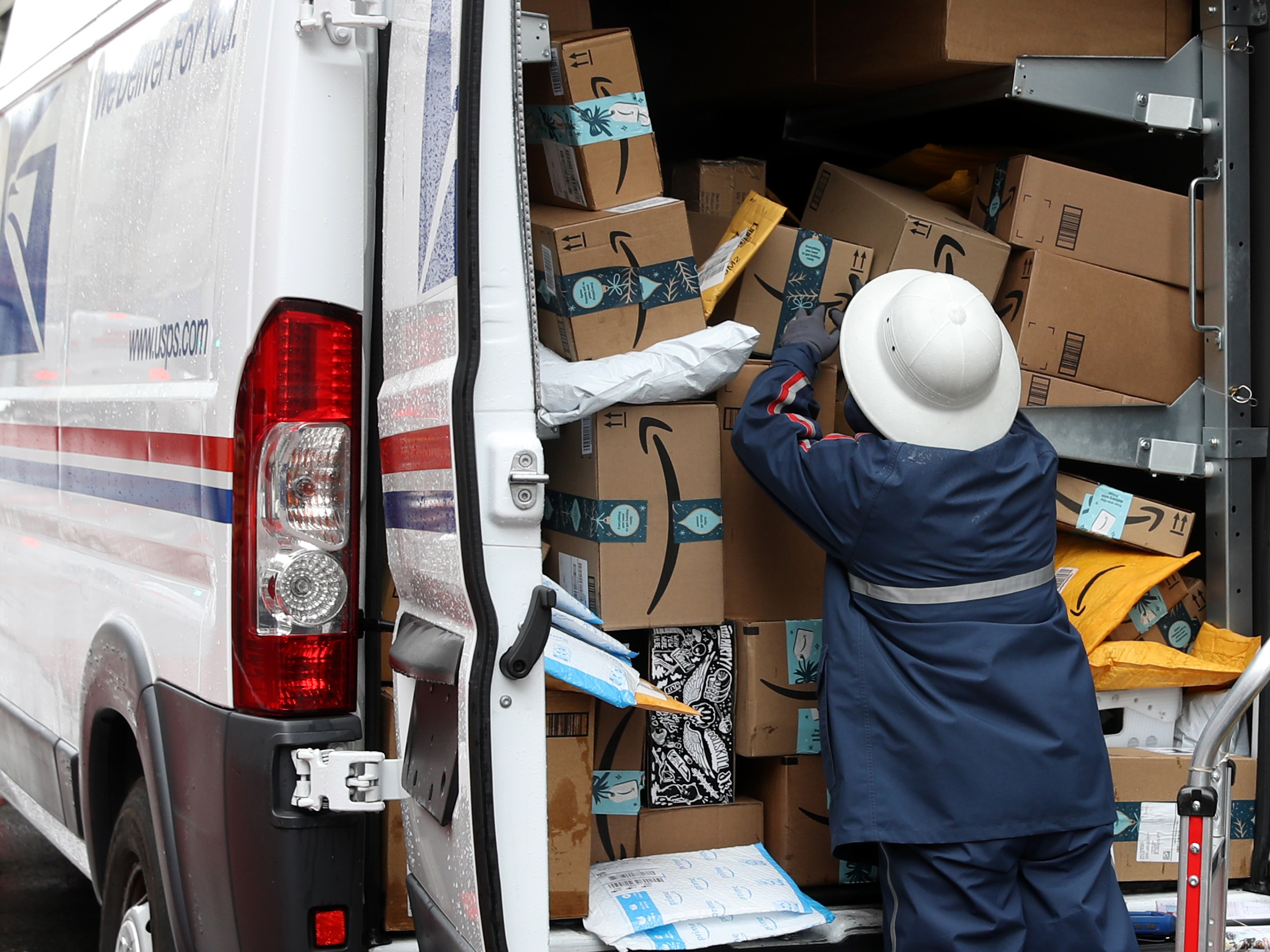- Two US representatives warned yesterday that the US Postal Service might cease regular operations as early as June.
- The lawmakers came to that conclusion after briefings about plummeting mail volumes, and said the Postal Service “will not survive the summer without immediate help.”
- This shutdown would be chaotic for Amazon, which heavily depends upon the USPS to deliver its packages.
- Visit Business Insider’s homepage for more stories.
The US Postal Service could be kaput by June without financial help, according to a warning from two lawmakers on the committee with jurisdiction over the service.
That’s not just bad news for all the places that still like to send physical junk mail instead of just emailing it, but also Amazon, which still depends on USPS services.
Reps. Carolyn Maloney and Gerry Connolly said in a statement on Tuesday that the coronavirus was plummeting mail volumes and the USPS “is in need of urgent help” from Congress and the White House. By the end of the summer, Maloney and Connolly said, the Postal Service could shut down unless it receives swift emergency funding.
The lawmakers said the shutdown would cut off Americans from “vital goods and services” and impair voting by mail. Another direct impact, not highlighted in yesterday’s warning, would be your Amazon Prime deliveries.
While Amazon has rapidly in-housed its delivery network in recent years, the mega-retailer still depends on the USPS to deliver many orders. As recently as July 2019, the USPS delivered about a third of Amazon packages, according to data from Rakuten Intelligence.
Amazon also pledged in April 2019 that it would deliver all Prime packages in one day. In rural America, the USPS would be a major part of that.

The Postal Service's deliveries are markedly larger in rural areas, where Amazon has not invested in its own last-mile network. A December report from Morgan Stanley said it's not a coincidence. The Seattle-based retail giant has "cherry-picked" America's densest ZIP codes and is leaving those areas where homes are more spread out, and more costly to service, to the USPS.
But the service has a legal imperative to serve all US addresses, even the low-margin, low-density rural neighborhoods. Rural America is so costly to service that McKinsey recently reported that even drone delivery might not offset the costs.
If the USPS were to vanish, Amazon would have to build its last-mile network in rural America or set up partnerships with delivery giants like UPS. CEO Jeff Bezos is already plunging billions into accelerating Amazon's shipping network, as worldwide shipping costs popped by 43% in the fourth quarter of 2019 despite online sales growing only by 15%.
The USPS and Amazon did not respond to a request for comment from Business Insider.
Coronavirus is delivering yet another blow to the USPS
The Postal Service lost $3.9 billion in fiscal year 2018, according to a December report from the Task Force on the United States Postal System. Its cumulative losses are nearing $70 billion.
One major contributor to USPS' woes is a 2006 law passed under President George W. Bush surrounding pre-funding retirement benefits. That law required the USPS to determine how much it would spend on pension over the next 75 years and quickly build up a fund to cover all of it. According to USPS' Inspector General, the requirement to pre-fund retiree benefits accounted for $54.8 billion of the agency's $62.4 billion loss incurred between 2007 and 2016.
And the coronavirus pandemic is yet another hit to the USPS. To give it a boost, Maloney and Connolly introduced a bill that would furnish the USPS with $25 billion in emergency funding.
"Every community in America relies on the Postal Service to deliver vital goods and services, including life-saving medications," they wrote on Tuesday. "The Postal Service needs America's help, and we must answer this call."

